
Given a book of matches, a box of thumbtacks, and a candle, how can you fix the candle to the wall so that its wax won’t drip onto the table below?

Given a book of matches, a box of thumbtacks, and a candle, how can you fix the candle to the wall so that its wax won’t drip onto the table below?
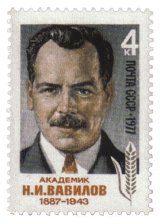
By 1941 Russian botanist Nikolai Vavilov had created the largest seed bank in the world, a collection of 400,000 seeds, roots, and fruits whose genetic material held the future of Soviet agriculture. Unfortunately it was located in Leningrad, which Hitler encircled that summer and began to starve.
The siege of Leningrad lasted two years and cost more than a million lives, and Vavilov’s scientists endured it surrounded by edible plants. “As they slowly starved, they refused to eat from any of their collection containers of rice, peas, corn and wheat,” two survivors remembered in 1993. “They chose torment and death in order to preserve Vavilov’s gene bank.”
The collection filled 16 rooms, in which no one was allowed to remain alone. Workers stored potatoes in the basement and guarded them in shifts, “numb with cold and emaciated from hunger.” Botanist Dmitri Ivanov died preserving thousands of packets of rice; peanut specialist Alexander Stchukin died at his writing table. In all, nine scientists and workers chose to die of starvation rather than eat the plants. Vavilov himself died in a labor camp in 1943, but today his bank is the largest collection of fruits and berries in the world.
(Thanks, Mike.)
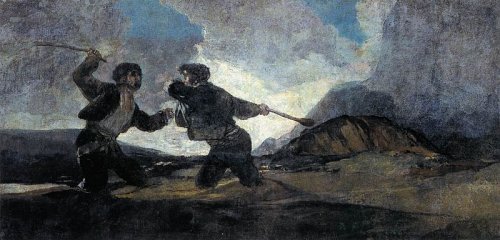
fustigate
v. to strike with a cudgel

Three flying saucers land simultaneously on a spherical planet.
What’s the probability that all land in or on the same hemisphere?
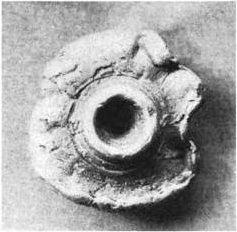
This is a picture of which Captain Gordon McCabe of Richmond, Virginia, writes: ‘I send photographs of two bullets, one Federal, the other Confederate, that met in mid-air and flattened out against each other. The bullets were picked up in 1865 between the lines immediately after the evacuation of Petersburg.’
— Francis Trevelyan Miller, The Photographic History of the Civil War, 1911
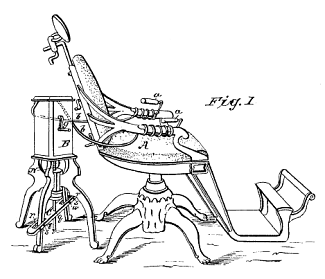
In 1886 Levi Deckard of Pennsylvania patented an electrified dental chair to provide “electricity as an anaesthetic” to people undergoing tooth extractions and other painful operations.
The dentist operates a foot-driven generator, the patient grips the electrodes, “and the desired shock is produced.” Deckard doesn’t explain why he thinks this will stop pain — but it certainly must be distracting.
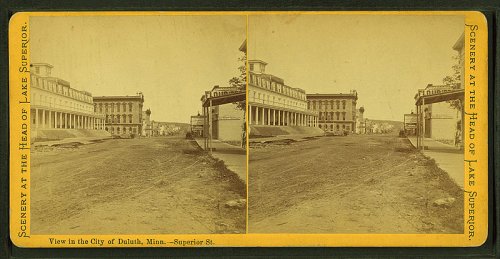
In 1871 the House of Representatives was considering subsidizing railroads to serve the Midwest, including tiny Duluth, Minn. Kentucky representative J. Proctor Knott rose, produced a bucket of sarcasm, and began ladling:
Duluth! The word fell upon my ear with peculiar and indescribable charm, like the gentle murmur of a low fountain stealing forth in the midst of roses, or the soft, sweet accents of an angel’s whisper, in the bright joyous dream of sleeping innocence. Duluth: ‘Twas the name for which my soul had panted for years, as the hart panteth for water-brooks. But where was Duluth? Never, in all my limited reading, had my vision been gladdened by seeing the celestial word in print. And I felt a profounder humiliation in my ignorance, that its dulcet syllables had never before ravished my delighted ear. …
Nevertheless, I was confident it existed somewhere, and that its discovery would constitute the crowning glory of the present century, if not of all modern times. I knew it was bound to exist in the very nature of things; that the symmetry and perfection of our planetary system would be incomplete without it, that the elements of material nature would long since have resolved themselves back into original chaos if there had been such a hiatus in creation as would have resulted from leaving out Duluth.
In fact, sir, I was overwhelmed with the conviction that Duluth not only existed somewhere, but that wherever it was, it was a great and a glorious place. I was convinced that the greatest calamity that ever befell the benighted nations of the ancient world was in their having passed away without a knowledge of the actual existence of Duluth; that their fabled Atlantis, never seen save by the hallowed vision of inspired poesy, was in fact but another name for Duluth; that the golden orchard of the Hesperides was but a poetical synonym for the beer gardens in the vicinity of Duluth.
I was certain that Herodotus had died a miserable death because in all his travels and with all his geographical research he had never heard of Duluth. I knew that if the immortal spirit of Homer could look down from another heaven than that created by his own celestial genius upon the long lines of pilgrims from every nation of the earth to the gushing fountain of poesy opened by the touch of his magic wand, if he could be permitted to behold the vast assemblage of grand and glorious productions of the lyric art called into being by his own inspired strains, he would weep tears of bitter anguish that instead of lavishing all the stories of his mighty genius upon the fall of Troy it had not been his more blessed lot to crystallize in deathless song the rising glories of Duluth.
Yet, sir, had it not been for this map, kindly furnished me by the Legislature of Minnesota, I might have gone down to my obscure and humble grave in an agony of despair, because I could nowhere find Duluth. Had such been my melancholy fate, I have no doubt that with the last feeble pulsation of my breaking heart, with the last faint exhalation of my fleeting breath I should have whispered, ‘Where is Duluth?’
The bill was defeated. See American Notes.

When Richard Feynman won the Nobel Prize in 1965, CERN director Victor Weisskopf worried that he would be driven out of physics and into administration. He goaded Feynman into signing a wager before witnesses:
Mr. FEYNMAN will pay the sum of TEN DOLLARS to Mr. WEISSKOPF if at any time during the next TEN YEARS (i.e. before the THIRTY FIRST DAY OF DECEMBER of the YEAR ONE THOUSAND NINE HUNDRED AND SEVENTY FIVE), the said MR. FEYNMAN has held a ‘responsible position.’
The two agreed: “For the purpose of the aforementioned WAGER, the term ‘responsible position’ shall be taken to signify a position which, by reason of its nature, compels the holder to issue instructions to other persons to carry out certain acts, notwithstanding the fact that the holder has no understanding whatsoever of that which he is instructing the aforesaid persons to accomplish.”
Feynman, who once called administration an “occupational disease,” collected the $10 in 1976.
“To be without some of the things you want is an indispensable part of happiness.” — Bertrand Russell
“There are two tragedies in life. One is not to get your heart’s desire. The other is to get it.” — George Bernard Shaw
“Leave something to wish for, so as not to be miserable from very happiness.” — Baltasar Gracián
In June 2011, 49-year-old Fagilyu Mukhametzyanov of Russia woke up in a coffin surrounded by weeping relatives. Realizing she was at her own funeral, she began screaming and was rushed back to the hospital, which declared her dead of a heart attack. “I am very angry and want answers,” her husband, Fagili, told the Sun. “She wasn’t dead when they said she was, and they could have saved her.” (Thanks, Mark.)